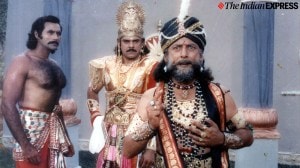PM raps Mandela meddling
DURBAN, SEPT 3: Prime Minister Atal Behari Vajpayee was forced to make last-minute changes in his address to the Non-Aligned Movement (NA...

DURBAN, SEPT 3: Prime Minister Atal Behari Vajpayee was forced to make last-minute changes in his address to the Non-Aligned Movement (NAM) summit today to express condemnation of South African President Nelson Mandela’s provocation of sorts yesterday with a reference to the Kashmir issue.
Vajpayee firmly rejected third-party mediation in Kashmir issue and bluntly told Mandela that his suggestions in this regard were “uncalled for and unacceptable”.
In a rebuff to Mandela, the new chairman of the NAM, Vajpayee told the summit here, “Let me say this loud and clear, there is no place for any third-party involvement in this process, howsoever well intentioned.”
Asserting that Jammu and Kashmir was and would remain an integral part of India, the Prime Minister told the gathering of the 114-member grouping that the “real problem” was one of cross-border terrorism.
Vajpayee left Mandela in no doubt about New Delhi’s reaction to his comments dismissing them as “uncalled for and unacceptable” when hemet him at a banquet hosted for NAM leaders by the South African President last night.
The Prime Minister is believed to have conveyed India’s shock and displeasure over Mandela’s reference to the Kashmir issue.
Indian delegation sources said Vajpayee told Mandela that such a reference should not have been made at all at the summit.
Vajpayee referred to his “cordial” meeting with Pakistan Premier Nawaz Sharif in Colombo in July and the continuing dialogue here between the two sides, and said, “This (forum of NAM) is not the place to air the differences in some of our positions.”
“The Shimla Agreement, which both India and Pakistan have ratified, provides an agreed mechanism for resolving these differences amicably among ourselves,” he said.
During his speech, Vajpayee explained India’s security concerns that led to the Pokhran nuclear tests and suggested a nuclear arms convention to eliminate weapons of mass destruction.
He also called for a global conference on combatting terrorism andsetting up of an agenda for the management of international economy.
Apparently disapproving the recent US missile strikes on Sudan and Afghanistan, Vajpayee said the fight against terrorism called for a “concerted international effort” and it cannot be fought by unilateral or selective action.
Calling for an international meet on terrorism, he said the scourge “is a plain naked assault on humanity and the values that civilised societies live by”.
While some countries were unable to agree on a definition of terrorism for reasons of “political convenience or worse”, some others with “myopic loftiness” were far too willing to judge democracies on the same scale on which they placed terrorists who battered open societies, he said.
Vajpayee also utilised the opportunity to allay fears that the nuclear tests in South Asia raised the spectre of an arms race and heightened tension.
“These apprehensions are misplaced. India continues to seek good relations with all its neighbours and to work withthem to build on our commonalties and shared aspirations,” he said.
He said India conducted the nuclear tests in a geo-political environment where “our security was becoming ever more threatened by the overt and covert nuclearisation of our neighbourhood.”
Vajpayee said India did not believe that nuclear weapons were to stay and offered to be the first to join negotiations on abolishing nuclear weapons if established nuclear powers agreed to such a move.
“Today, I urge them, as India has urged them so many times before, to join us in the NAM in negotiating a nuclear weapons convention, through which we can eliminate this last category of weapons of mass destruction,” he said.
Vajpayee called for priority to set an agenda for management of the international economy, and said protectionism had returned to markets of the developed world.
Trade and investment are being increasingly used to promote political objectives on labour standards, intellectual property rights, human rights and environment,he said.
“These are defences thrown up against recent successes of some developing countries. These members of our movement have emerged in the vanguard of international growth, but others have not only been economically marginalised by globalisation, even the stability of their societies is threatened,” he said.
“.. In each country, the marketplace has to be run according to rules which say that the country must determine as the only guardian of the well-being of its people,” he said.





- 01
- 02
- 03
- 04
- 05


























